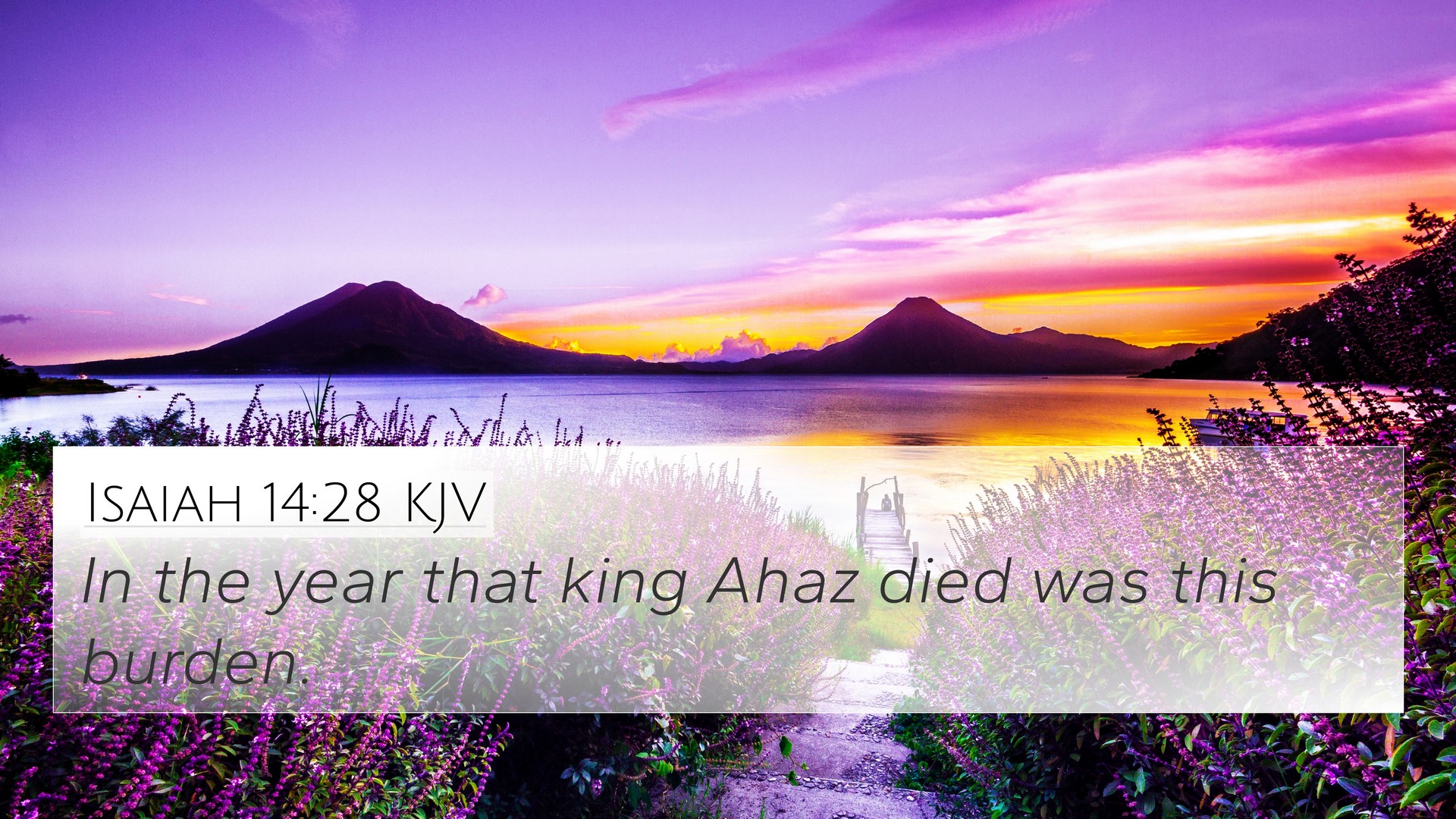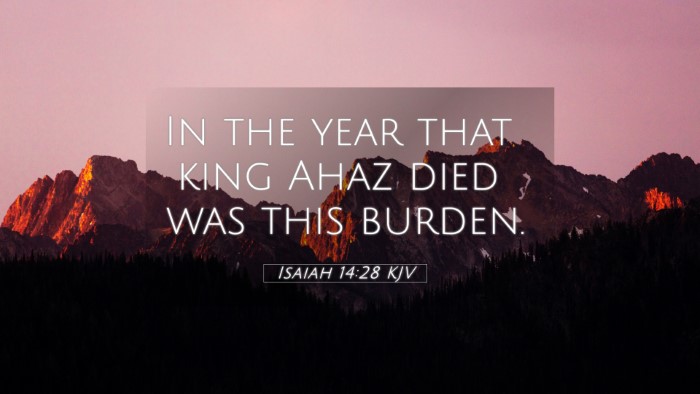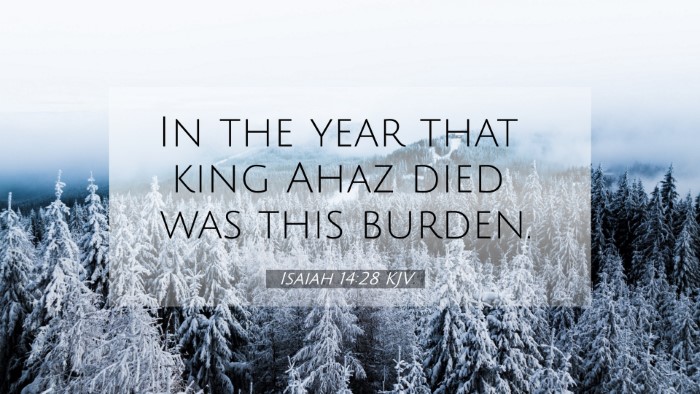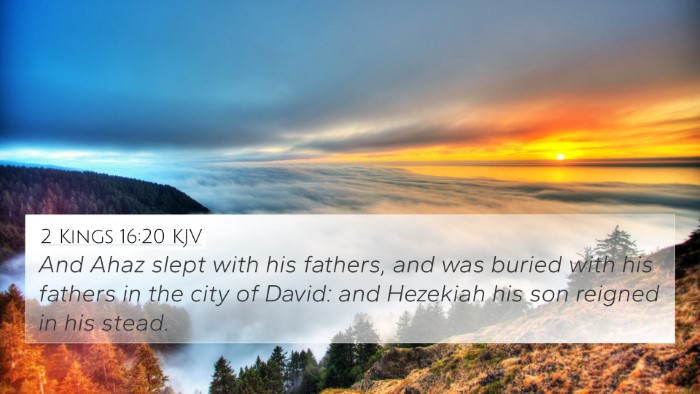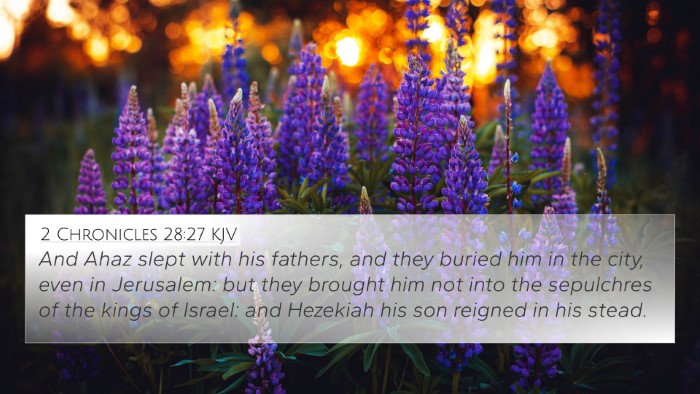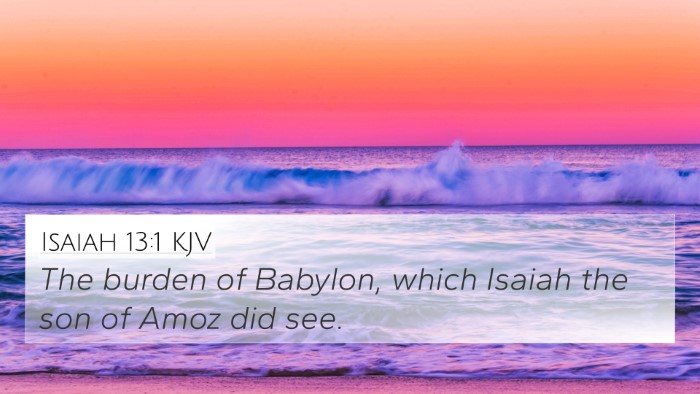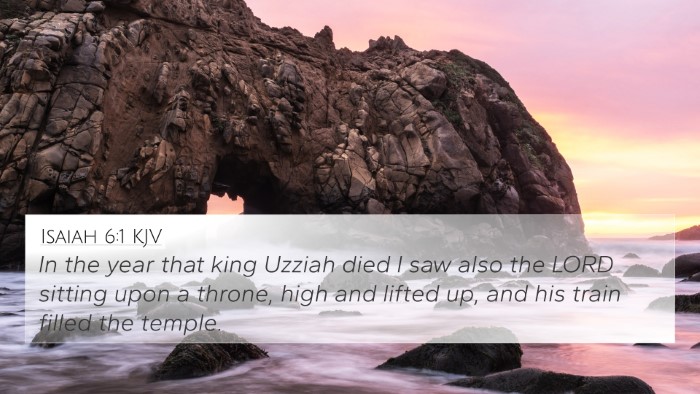Understanding Isaiah 14:28
Isaiah 14:28 states: "In the year that king Ahaz died was this burden." This verse is significant as it marks a transition in prophetic focus within the book of Isaiah. It sets the stage for the prophecies and judgments concerning the nations surrounding Israel, particularly focusing on the fate of Babylon.
Contextual Overview
This verse serves as an introduction to the burdens that follow, specifically the lamentation over the king of Babylon. The death of King Ahaz, a significant event, is highlighted to emphasize a change in political and spiritual dynamics for Judah and the surrounding nations.
Commentary Insights
- Matthew Henry's Commentary:
Henry draws attention to the fact that the death of Ahaz marked a turning point for Judah. The mention of the prophetic burden signifies the seriousness of the message being delivered, as it follows a time of instability during Ahaz's reign. His corrupt leadership led the nation further away from God, and with his death, a glimmer of hope surfaces for Israel's future.
- Albert Barnes' Notes:
Barnes emphasizes the historical context, noting that the prophecy about Babylon comes in light of Ahaz's death. He discusses the nature of God's message, indicating that though the nations assume power, it is ultimately God who allows them to rise and fall. This sets the theological backdrop for understanding the sovereignty of God in the affairs of men.
- Adam Clarke's Commentary:
Clarke views the statement as a critical marker in biblical history. He posits that this burden was not just about Babylon but represented a broader message to all nations. The death of Ahaz led to new leaders and potential shifts in alliances, which are captured through prophetic warning and counsel.
Thematic Connections
Isaiah 14:28 connects to various themes and scriptures throughout the Bible. Below are a few examples:
- Cross-References:
- Isaiah 14:12-15 - The fall of Lucifer, likening the pride of Babylon.
- Isaiah 10:5-19 - The Assyrian as the rod of God's anger, presenting the theme of divine judgment on nations.
- Isaiah 13:1-22 - The burden concerning Babylon, elaborating on intervening consequences.
- 2 Kings 16:20 - The end of King Ahaz's reign, linking the political and spiritual narrative.
- Jeremiah 51:7-8 - The judgment on Babylon, reinforcing the prophetic burden message.
- Revelation 18:2 - The judgment of Babylon, establishing a connection to eschatological themes.
- Matthew 24:2 - Jesus referencing the destruction of Jerusalem, paralleling prophetic significance.
Exploring Connections Between Bible Verses
This verse not only stands on its own but also offers a rich tapestry of connections with other biblical texts. Understanding cross-references aids in appreciating the continuity and complexity of God's message across different contexts and time periods.
Tools for Bible Cross-Referencing
To delve deeper into Isaiah 14:28 and other connected verses, one can utilize various tools:
- Bible Concordance - To search for related verses quickly.
- Bible Cross-Reference Guide - Provides systematic links to parallel scriptures.
- Bible Chain References - Follow thematic links across books.
- Comprehensive Bible Cross-Reference Materials - For exhaustive research.
Conclusion
Isaiah 14:28 is not merely a historical note; it encapsulates profound truths about God’s sovereignty, offers insight into prophetic burdens, and establishes connections across the biblical canon. By exploring related passages, readers gain not only a deeper understanding of this verse but also an appreciation of the intricate dialogue woven throughout the Scriptures.
